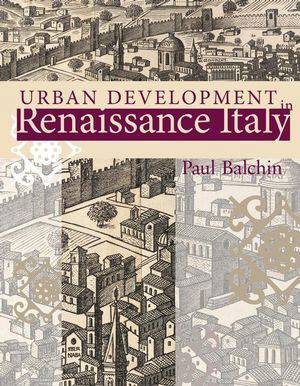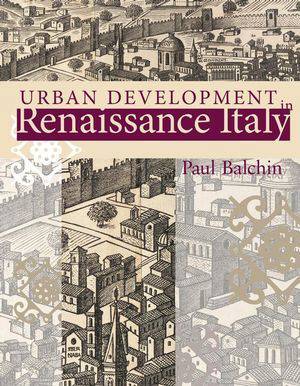
Bedankt voor het vertrouwen het afgelopen jaar! Om jou te bedanken bieden we GRATIS verzending (in België) aan op alles gedurende de hele maand januari.
- Afhalen na 1 uur in een winkel met voorraad
- Gratis thuislevering in België
- Ruim aanbod met 7 miljoen producten
Bedankt voor het vertrouwen het afgelopen jaar! Om jou te bedanken bieden we GRATIS verzending (in België) aan op alles gedurende de hele maand januari.
- Afhalen na 1 uur in een winkel met voorraad
- Gratis thuislevering in België
- Ruim aanbod met 7 miljoen producten
Zoeken
Omschrijving
Providing a comprehensive account of one of the most formative historical periods, this book uniquely describes Renaissance architecture as the physical manifestation of economic, social and political change. Shifts in architectural style and design are described in parallel with Italy's economic and demographic growth, external and internal conflict and the evolution of urban and regional government. Urban Development in Renaissance Italy covers the full extent of the Renaissance period, charting the era's medieval roots and its transformation into Mannerist and Baroque tendencies. Encompassing Palermo and Naples, the book fully covers northern, central and southern Italy, surpassing the conventional literature that tends to focus solely on northern Italy.
Transforming medieval towns into city states, Renaissance governments invested heavily in developing the built environment to create a sense of awe and civic pride; while aristocratic dynasties, bankers and merchants commissioned sumptuous properties as a means of expressing their wealth and position in society; and holy orders built imposing churches to extend their influence. Architecture and planning, it is argued by Dr Paul Balchin provided a clear and significant path to political and economic power. It is within this context that the centre of political and economic gravity shifted over time within Italy from the republic of Venice in the 14th century to Medici Florence in the 15th century, and on to Papal Rome in the 16th and early 17th centuries.
Transforming medieval towns into city states, Renaissance governments invested heavily in developing the built environment to create a sense of awe and civic pride; while aristocratic dynasties, bankers and merchants commissioned sumptuous properties as a means of expressing their wealth and position in society; and holy orders built imposing churches to extend their influence. Architecture and planning, it is argued by Dr Paul Balchin provided a clear and significant path to political and economic power. It is within this context that the centre of political and economic gravity shifted over time within Italy from the republic of Venice in the 14th century to Medici Florence in the 15th century, and on to Papal Rome in the 16th and early 17th centuries.
Specificaties
Betrokkenen
- Auteur(s):
- Uitgeverij:
Inhoud
- Aantal bladzijden:
- 491
- Taal:
- Engels
Eigenschappen
- Productcode (EAN):
- 9780470031544
- Verschijningsdatum:
- 1/06/2008
- Uitvoering:
- Hardcover
- Formaat:
- Genaaid
- Afmetingen:
- 178 mm x 221 mm
- Gewicht:
- 1247 g

Alleen bij Standaard Boekhandel
+ 251 punten op je klantenkaart van Standaard Boekhandel
Beoordelingen
We publiceren alleen reviews die voldoen aan de voorwaarden voor reviews. Bekijk onze voorwaarden voor reviews.












